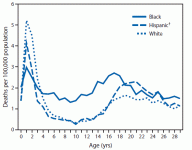You're welcome, but my point is that you have two sources of greater density each of which may plausibly count as a factor making it more difficult (all other things equal) for a person to stay afloat - namely, denser bones and smaller lungs -, but a source of greater density (namely, denser muscles) whose impact (all other things equal) on a person's ability to stay afloat is more difficult to assess. How those sources interact with each other (i.e., all other things are not equal) is also difficult to assess.
On the other hand, the parallels you make count entirely against a person's ability to stay afloat. The difference can be very significant.
For example, consider the following scenario:
Let's say Bob and Tom both know how to swim equally well, but Bob has extra density resulting from his denser bones, muscles, and smaller lungs, whereas Tom is carrying the gold chains you mentioned, and that equals their weight (they have the same height). Which one would you expect to survive for longer, before drowning?
It seems to me that Bob very probably would survive for longer, all other things equal (assuming Tom can't get rid of the chains, of course).
This does not imply you don't have a point regarding the contribution of race to drowning rates, but you seem to be going beyond what your evidence warrants with regard to the extent of the differences.
ApostateAbe said:
I do not have body density data for other races. Maybe the data is out there and I have not looked long enough. If you can find the average body density of Asian Americans, I absolutely will analyze it in relation to drowning rates.
I'm afraid I don't know the numbers, either, but the difference in length of legs and trunk would seem to predict bigger lungs in at least American aborigins.
Also, there are some studies showing difference in lung capacity based on ethnicity (e.g.,
http://www.ncbi.nlm.nih.gov/pubmed/9493668 )
Then again, I found a study that shows greater lung capacity in Caucasians than Chinese (
http://www.ncbi.nlm.nih.gov/pubmed/1955006 ), so that's not so clear to me.
I will withdraw that example, since it's unclear and the point I was trying to make is about your recommended policy with regard to Black people, and your claim about buoyancy (e.g., "Maybe you can be both black and buoyant.", etc.), can be made without it.
ApostateAbe said:
The sex differences are a very good point--boys are three times as likely to drown than girls--and I absolutely agree that the greater drowning risk for males should be a strong consideration. It means, at the very least, lifeguards should be informed of the average body density difference pay closer attention to boys than to girls. Parents should pay more attention to their sons than to their daughters in the swimming pool. I don't think most of us would have a problem with that proposal, right? Well, maybe the anti-sexists and those who don't want to give credit to the "racist" argument.
A similar proposal in the case of race would be that lifeguards should be informed and told to pay closer attention to Blacks than Caucasians. That's not the sort of proposal I was asking about, though. I was asking about the claim I quoted, and your recommended policy.
For example, you say:
ApostateAbe said:
Maybe you can be both male and buoyant. But, if you sink like a rock, then don't learn how to swim. Just trust your instincts and stay the hell away from the water.
A parallel would be:
Maybe you can be both male and buoyant. But, if you sink like a rock, then don't learn how to swim. Just trust your instincts and stay the hell away from the water.
Even if Caucasians/females are less dense than Blacks/males, it doesn't follow that Caucasians/females are buoyant, but Blacks/males are not.
Moreover, even if Caucasians/females are less dense than Blacks/males, it doesn't follow that it's somehow detrimental for Blacks/males to learn how to swim. In fact, one can learn how to swim in a swimming pool in which one can walk, with the water at the level of the neck or the chest. There is problem with density in such cases, and learning how to swim can save a person's life in other situations (e.g., if they fall from a boat, or there is a flood, etc.), so learning how to swim remains advisable as far as I can tell.
Granted, avoiding swimming altogether, avoiding boats, etc., will reduce the risk of drowning (you can still get caught by a Tsunami or a flood or something, but it's much less likely), but that works for both males and females, and for all races, even if to different degrees. Moreover, the increased risk from Caucasians to Blacks is lesser than the increased risk from males to females, but you're not advocating that males refrain from learning how to swim - just that lifeguards should be informed, etc.
In any event, the risks involved do not seem to support the view that it's generally ill-advised for Blacks or males to, say, swim for fun, even in water deeper than their height. All healthy humans can learn to do that, and we often take some risks in activities that we like. Do you think this particular risk is too much for Blacks and/or males?
ETA: Actually, females have less lung capacity than males. But the main point is not about the differences in risk. The comparison of the Black/Caucasian differences with male/female difference and with other racial differences was meant to draw attention to the fact that an advantage when it comes to staying afloat is not sufficient to warrant the courses of action in question.



